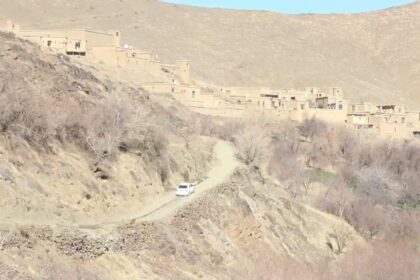RASC News Agency: In yet another draconian attempt to control the flow of information and suppress dissent, the Taliban’s so-called Ministry for the Promotion of Virtue and Prevention of Vice has unveiled a new wave of restrictions targeting social media users in Afghanistan. The edict threatens legal consequences for anyone accused of creating “fake accounts” or engaging in what the regime loosely defines as “misuse” of virtual platforms. Saif-ul-Islam Khyber, spokesperson for the ministry, announced that online behavior deemed inconsistent with the group’s ideological code will be treated as a punishable offense. “No one should exploit social media for objectives that oppose public interest,” he declared though what constitutes a breach of “public interest” remains deliberately vague and entirely subject to Taliban interpretation.
According to the statement, only limited categories of social media use are considered lawful, including the dissemination of “accurate” information, commercial activity, educational content, and public awareness messaging. However, with the Taliban serving as both the gatekeeper and enforcer of these definitions, these allowances offer little meaningful protection for users seeking to express independent thought or criticism. This latest announcement is part of a growing pattern of digital authoritarianism that has intensified since the Taliban’s return to power in 2021. Under the guise of religious morality, the group has systematically criminalized online dissent, shattered what remained of Afghanistan’s digital civic space, and replaced it with a climate of surveillance, fear, and repression.
Behind the Ministry’s orders, the Taliban’s intelligence apparatus the General Directorate of Intelligence (GDI) plays a more sinister role. Multiple sources confirm that ordinary citizens have been monitored, abducted, imprisoned, and in some cases tortured, merely for posting or sharing content critical of the regime. The Taliban’s cyber units have been granted sweeping powers to identify and neutralize what they call “anti-Taliban propaganda,” often targeting activists, journalists, and former government employees. Human rights watchdogs have condemned these tactics as a flagrant violation of international norms and a direct assault on freedom of speech and access to information. Civil society organizations report that the regime has now deployed specialized online surveillance teams, tasked with trawling platforms like Facebook, WhatsApp, TikTok, and X (formerly Twitter), to silence anyone opposing their fundamentalist narrative.
Under Taliban rule, Afghanistan’s once-vibrant digital space has been reduced to a ghost of its former self. Independent journalism has been crippled, satire and cultural expression extinguished, and a generation of educated, urban youth now lives in fear of expressing even the most benign views online. The Taliban’s totalitarian impulse to micromanage not only public but private expression down to the level of personal social media accounts demonstrates the extent of their insecurity and paranoia. While the regime preaches “virtue,” it actively cultivates a culture of fear, censorship, and intellectual suffocation. International observers warn that without meaningful international pressure and digital protection mechanisms, Afghanistan is on a fast track to becoming a closed society, where surveillance replaces dialogue, repression replaces governance, and even the illusion of digital freedom is snuffed out.






